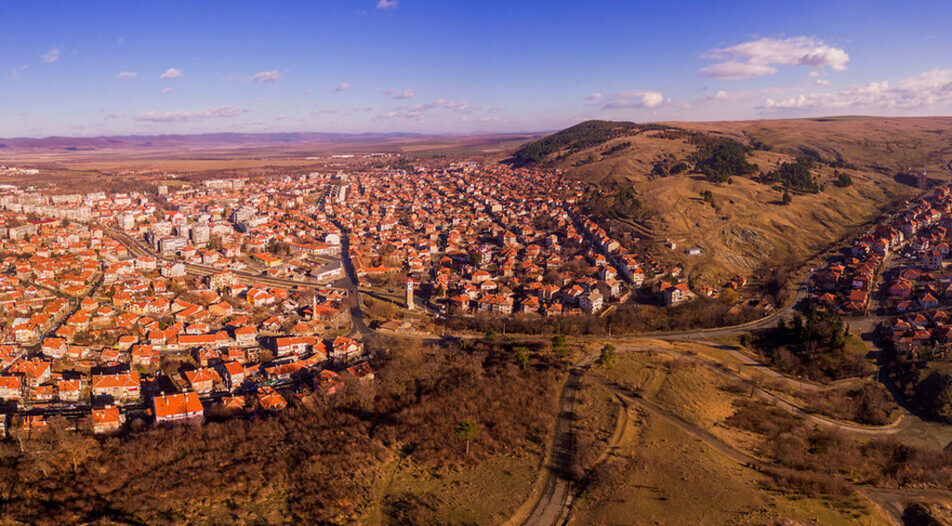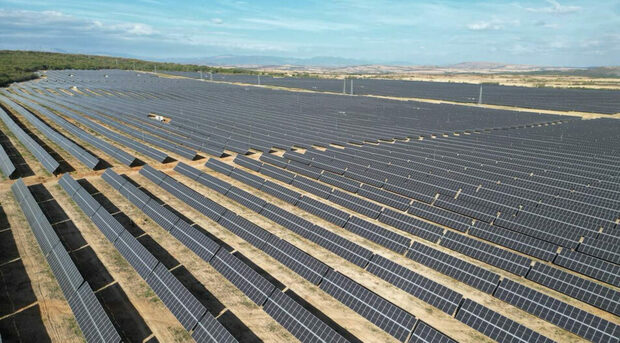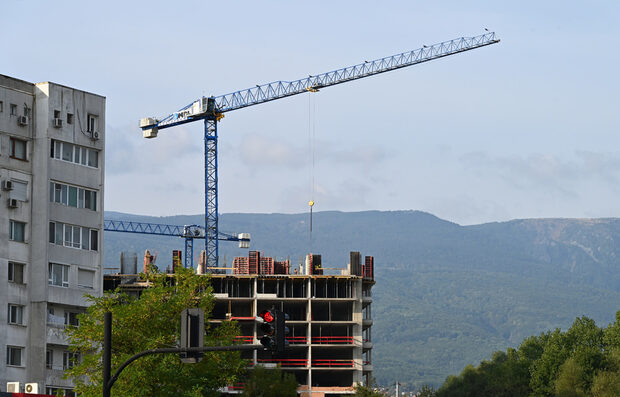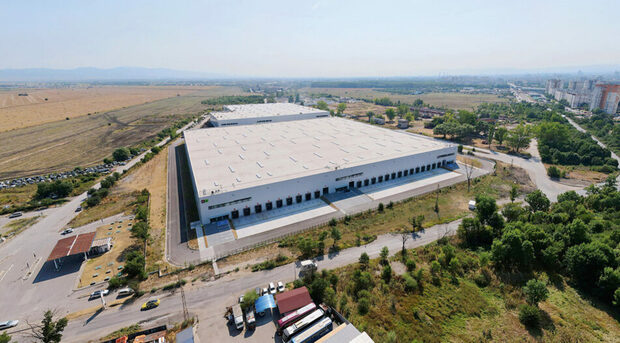- Real estate transactions decrease for the fourth consecutive quarter in April-June
- The cities of Sofia, Varna, and Stara Zagora show comparatively stable or slightly slower declines compared to the previous quarter.
- On the other hand, Plovdiv, Burgas, and Ruse see a more pronounced deepening of the decline.
- Within Bulgaria's southern Black Sea region, known for its higher transaction volume, the decline is now even more significant than in its northern counterpart.
The real estate sector in Bulgaria is experiencing a prominent slump, with transactions plummeting for the fourth consecutive quarter in the April-June period, by 15%. The latest data for Q2 2023, sourced from the Registry Agency, shows a downward trend in property transactions that began in the second half of 2022. The months from July to September showed a descent of 7.3%, followed by a further decline of 10.4% from October to December. This trend persisted into the first quarter of the current year with a 9% dip, but in the period from April to June a drop of 15% was observed. The transaction count for the last quarter came in at 54,371, marking a decrease of 9,557 compared to the same period last year. The overall annual decline for the first half of the year was stable at 12%.
Moderate dips in major urban markets
Sofia, the capital city, has experienced a relatively modest decrease of 12%. What's interesting is that 54% of the transactions in Sofia concluded from April to June were mortgage-backed, highlighting a reliance on financial leverage for property acquisitions.
Comparable rates of decrease or stability in the number of property transactions were seen in Sofia, Varna, and Stara Zagora. Conversely, Plovdiv, Burgas, and Ruse experienced a more pronounced decline. It's worth noting that in Bulgaria's southern Black Sea region, where transaction volumes are higher, the decline is more pronounced compared to the northern counterpart.
The role of mortgages in transactions has grown significantly, with 54% of all transactions in Sofia supported by mortgages. Similarly, the bigger cities reported rates from 55% to 66% for mortgage-backed transactions, well above the national average of 23%. The decline in property purchases in Bulgaria has spanned four consecutive quarters, to Q2 2023 included.
Diverse trends
In the diverse realm of real estate transactions, different metropolitan areas displayed varying degrees of decline in Q2 2023. For instance, the deals in Sofia decreased by a relatively modest 11.8% to 8,615. Varna's decline is even more moderate, slowing from 19% in the first quarter to 12.4% in the second quarter, when 3,792 transactions were sealed. Stara Zagora's decline decelerated from 25% in the first quarter to 18% in the second quarter, with 1,076 transactions recorded from April to June.
On the contrary, several major markets experienced more substantial declines compared to the previous quarter. Plovdiv's transactions decreased by 17.8% to 4,175. In the popular coastal destination of Nesebar, transactions plummeted by 23.3% to 2,235. Burgas witnessed a 23.2% decline, tallying 1,736 transactions. Deals in Ruse fell by 16% to 1,200. Significant reductions were also seen in Pleven (-19.6%) and Pazardzhik (-13.4%). Yambol's transactions fell by 26% to 753.
Transaction patterns
Analyzing the first half of the year reveals an intriguing correlation between city size and transaction decline. The larger the city, the smaller the decrease in property transactions. For example, Sofia's decline stands at 11.9% year-on-year in January-June while Plovdiv witnesses a 13.9% drop, Varna records a 15.3% decline, Burgas observes a 17% reduction, and Stara Zagora shows a 21.2% downturn. A big city like Ruse and a small town like Nesebar however deviate from this trend with declines of 14% and 13.6%, respectively.
Remarkably, only six peripheral registry offices report slight growth during the second quarter. While the growth numbers are modest - with increases ranging from 4 to 50 transactions - they suggest a nuanced market behavior in areas like Ardino, Ivaylovgrad, Knezha, Karnobat, Nikopol, and Devin.
The connection with mortgages
The reliance on mortgage financing in the real estate market seems to have cushioned a steeper decline. In the first half of the year, mortgage-related transactions decreased by a marginal 3% or 22,764 deals. This constitutes roughly 23% of all transactions during the period, reflecting a positive impact on the overall health of the market.
Sofia, where average prices exceed 2000 euro per square meter from April to June, stands out with an impressive 54% of all transactions involving mortgages. Similarly, mortgage-backed transactions account for 35% of all in Stara Zagora, 33% in Burgas, and approximately 32% in Plovdiv and Varna. Ruse completes the picture with mortgages supporting 29% of all transactions.
- Real estate transactions decrease for the fourth consecutive quarter in April-June
- The cities of Sofia, Varna, and Stara Zagora show comparatively stable or slightly slower declines compared to the previous quarter.
- On the other hand, Plovdiv, Burgas, and Ruse see a more pronounced deepening of the decline.
- Within Bulgaria's southern Black Sea region, known for its higher transaction volume, the decline is now even more significant than in its northern counterpart.
The real estate sector in Bulgaria is experiencing a prominent slump, with transactions plummeting for the fourth consecutive quarter in the April-June period, by 15%. The latest data for Q2 2023, sourced from the Registry Agency, shows a downward trend in property transactions that began in the second half of 2022. The months from July to September showed a descent of 7.3%, followed by a further decline of 10.4% from October to December. This trend persisted into the first quarter of the current year with a 9% dip, but in the period from April to June a drop of 15% was observed. The transaction count for the last quarter came in at 54,371, marking a decrease of 9,557 compared to the same period last year. The overall annual decline for the first half of the year was stable at 12%.












